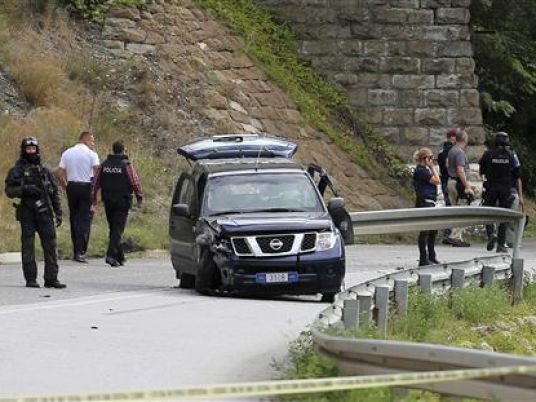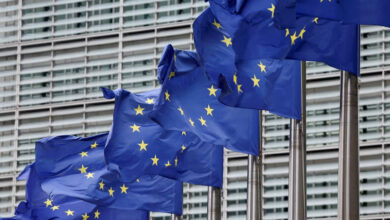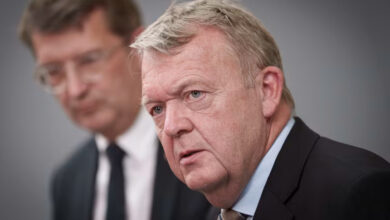
Gunmen shot dead a European Union police officer in a mainly Serb region of Kosovo on Thursday, dealing the mission its first fatality since deploying in 2008 and shaking a fragile accord between the Balkan country and its former master Serbia.
The Lithuanian officer was killed in a northern region where minority ethnic Serbs are growing increasingly nervous over a deal brokered by the EU in April to integrate them with the rest of majority-Albanian Kosovo.
The EU’s law and order mission in Kosovo, known as EULEX, said the officer’s vehicle “came under fire from unknown persons” at around 7:30 am (1:30 am ET) as he returned from a shift at a border crossing with Serbia.
EULEX chief Bernd Borchardt told a news conference the officer had been ambushed.
Doctors in the ethnically divided town of Mitrovica, where the officer was taken for treatment, said he was dead on arrival, having been shot in the chest and lower leg. A Czech officer was also in the car but was unharmed.
Kosovo declared independence from Serbia in 2008, almost a decade after NATO waged a 78-day air war to drive out Serbian forces and halt the massacre and expulsion of ethnic Albanians during a two-year Serbian counter-insurgency campaign.
Serbia rejected the secession and retained de facto control over a northern strip of Kosovo where some 50,000 Serbs live. Ninety percent of Kosovo’s 1.7 million people are Albanians.
Seeking the economic boost of membership talks with the EU, Serbia – which does not recognize Kosovo as independent – agreed in April to cede its hold over the north and for the Serbs living there to be integrated with the rest of Kosovo.
“COWARDLY ACT”
As part of the accord, the north is due to take part in Kosovo’s next local elections on November 3, but hardline Serb leaders there say they will boycott the vote.
The 28-member EU, of which 23 members recognize Kosovo as independent, plans to open accession talks with Serbia in January, providing there is progress on the ground in implementation of the April deal.
EU foreign policy chief Catherine Ashton said she condemned the killing “in the strongest possible terms” and urged all sides to press ahead with the accord.
“I appeal to all parties to redouble their efforts to implement the agreements reached, to normalize relations and to improve the lives of the people on the ground in northern Kosovo,” Ashton said in a statement.
Kosovo has been recognized by around 100 countries, including the United States, but Serbian ally Russia – a veto-holder in the U.N. Security Council – is blocking its membership of the United Nations.
With 2,250 staff, including police officers, judges and prosecutors, EULEX is the largest civilian mission ever deployed by the EU.
It has an annual budget of 111 million euros (US$148 million) but has come in for criticism, particularly from Germany, over its effectiveness in stamping out organized crime and quelling violence in the north, where it is backed by some 6,000 NATO peacekeepers.
Kosovo Prime Minister Hashim Thaci, a former guerrilla commander, said the killing was a “cowardly act.”
The Serbian government’s pointman for Kosovo, Aleksandar Vulin, told the Tanjug state news agency, “Whoever did this is the greatest foe of the Serbs and the Serbian state.”


